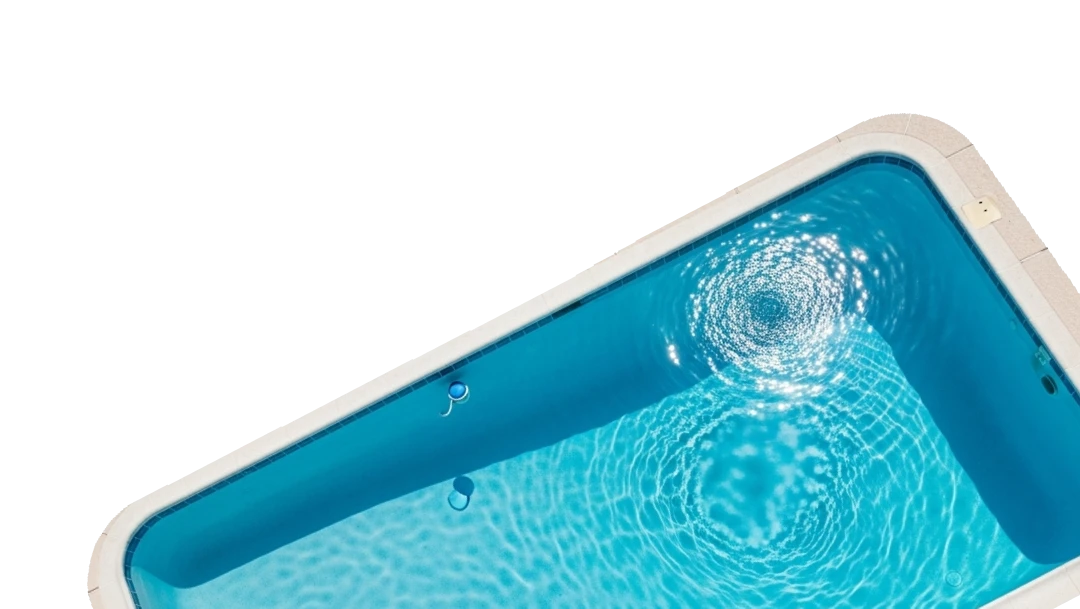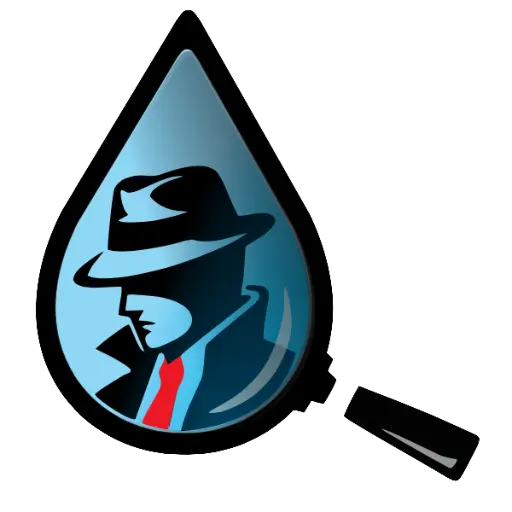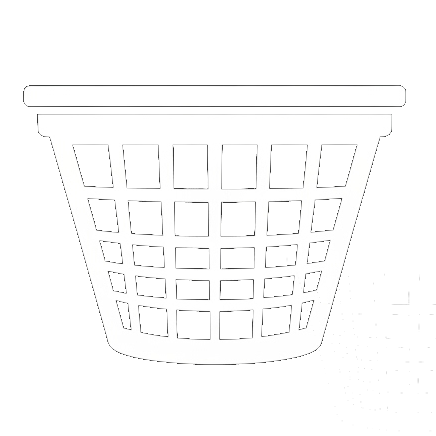Who Detects Pool Leaks? Your Guide to Pool Leak Detection in Arizona
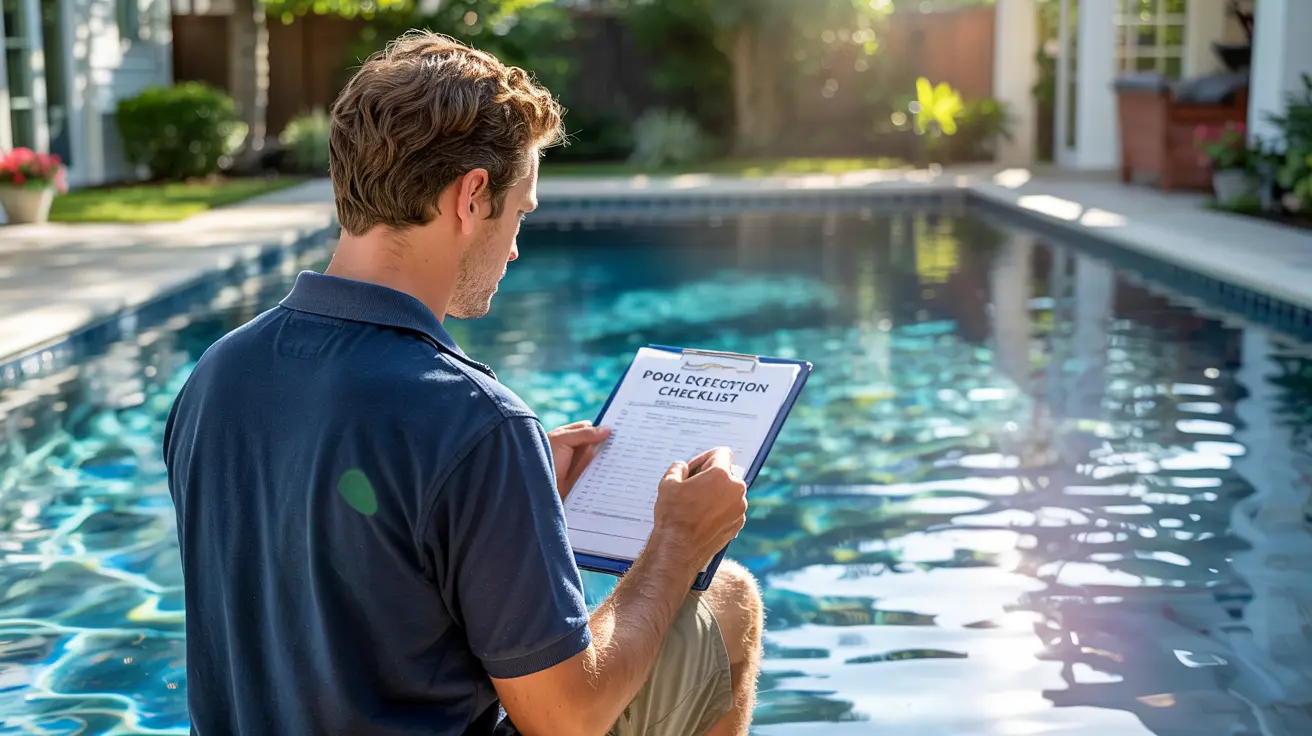
When your pool is losing water faster than normal evaporation, it’s time to ask: who detects pool leaks and how do you find the right expert? Pool leaks can lead to high water bills, structural damage, and costly repairs if not addressed quickly. In Arizona, Optimal Pool Leak Detection is the trusted name for finding and fixing leaks using the latest technology, including Leaktronics’ industry-leading leak detection equipment. This article explains who detects pool leaks, how the process works, and why professional leak detection is essential for pool owners who want to save water, money, and peace of mind.
What Are the Signs That Your Pool Is Leaking?
The most obvious sign of a pool leak is a sudden drop in your pool’s water level. Other common symptoms include:
- Needing to add more than two inches of water per week
- Wet spots or soggy ground around the pool deck
- Cracks in the pool shell, tile, or pool deck
- Air bubbles in the pool pump or return lines
- Increased chemical usage or fluctuating pool chemistry
- Higher water bills than usual
If you notice any of these, your pool may be losing water due to a leak instead of normal evaporation.
How Can You Tell If It’s a Leak or Just Evaporation?
The bucket test is a simple way to distinguish between water loss from evaporation and a swimming pool leak:
- Fill a bucket with pool water and place it on a pool step.
- Mark the water level inside and outside the bucket.
- Wait 24 hours and compare the levels.
- If the pool water drops more than the bucket’s, you likely have a leak.
This test is easy for any pool owner to perform and is the first step in leak detection.
Where Do Most Pool Leaks Happen?
Pool leaks commonly occur in:
- Cracks in the pool shell, plaster, or tile
- Around fittings, such as the skimmer, return lines, and pool lights
- Pool equipment, including the pump, filter, and valves
- Underground pool plumbing lines
- Vinyl liner seams or tears
Careful inspection of these areas can help narrow down the source of the leak.
What DIY Methods Can Help Detect a Pool Leak?
In addition to the bucket test, pool owners can use:
- Dye tests: Squeeze pool dye or food coloring near suspected leak areas (like cracks or fittings). If the dye is drawn into the crack, there’s a leak.
- Visual inspection: Look for cracks, loose tiles, or wet spots around the pool and equipment.
- Equipment check: Inspect the pool pump, filter, and plumbing for drips or corrosion.
While these methods can help find obvious leaks, hidden leaks often require professional tools and expertise.
Why Is Professional Pool Leak Detection Important?
Professional pool leak detection services use advanced technology and years of experience to:
- Pinpoint the exact location of the leak, even if it’s underground or behind pool walls
- Avoid unnecessary digging or damage to your pool and yard
- Accurately diagnose leaks in pool plumbing, structure, or equipment
- Save water and prevent further damage by repairing leaks quickly
DIY methods may miss small or hidden leaks, leading to ongoing water loss and more expensive repairs later.
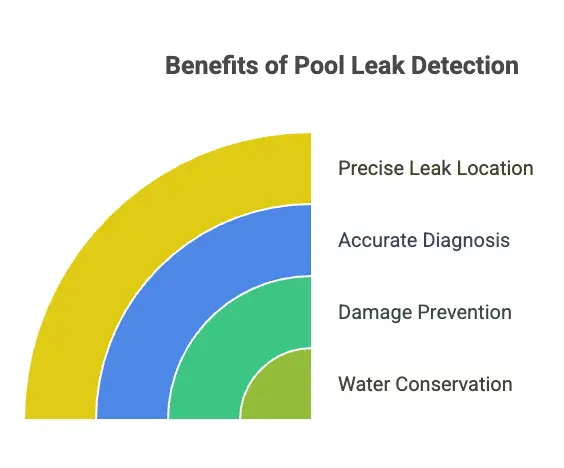
How Does the Pool Leak Detection Process Work?
A professional pool leak detection process typically includes:
- Initial inspection: Visual check for obvious signs of leaks or damage
- Pressure testing: Checks pool plumbing lines for leaks by monitoring pressure drops
- Dye testing: Pinpoints smaller leaks in cracks, fittings, or seams
- Electronic detection: Uses sensitive microphones and sonar to listen for leaks in pool shells or underground pipes
This thorough process ensures that all leaks are found and addressed, not just the obvious ones.
What Tools Do Professionals Use to Find Pool Leaks?
Experts like Optimal Pool Leak Detection use specialized equipment, including:
- LeakTronics electronic listening devices and hydrophones for pinpoint accuracy
- Pressure testing kits for plumbing lines
- Dye and sonar tests for hidden leaks
- Moisture meters and thermal cameras for hard-to-find water loss
These tools allow for non-invasive, accurate leak detection, saving you time, money, and hassle.
What Should You Expect From a Leak Inspection?
When you schedule a leak inspection with Optimal Pool Leak Detection, you can expect:
- A thorough examination of your pool, equipment, and plumbing
- Use of advanced Leaktronics equipment for precise results
- Clear communication about the location and cause of the leak
- Honest recommendations for repair options
- Fast, professional service from experienced technicians
You’ll receive a detailed report and a plan to fix the leak and restore your pool’s integrity.
Why Choose Optimal Pool Leak Detection in Arizona?
- Local expertise in Arizona’s unique climate and pool construction
- Use of Leaktronics’ industry-leading leak detection technology for reliable results
- Friendly, knowledgeable technicians dedicated to customer satisfaction
- Fast response and comprehensive service for all types of pool leaks
Optimal Pool Leak Detection is committed to helping you save water, reduce repair costs, and enjoy your pool worry-free.
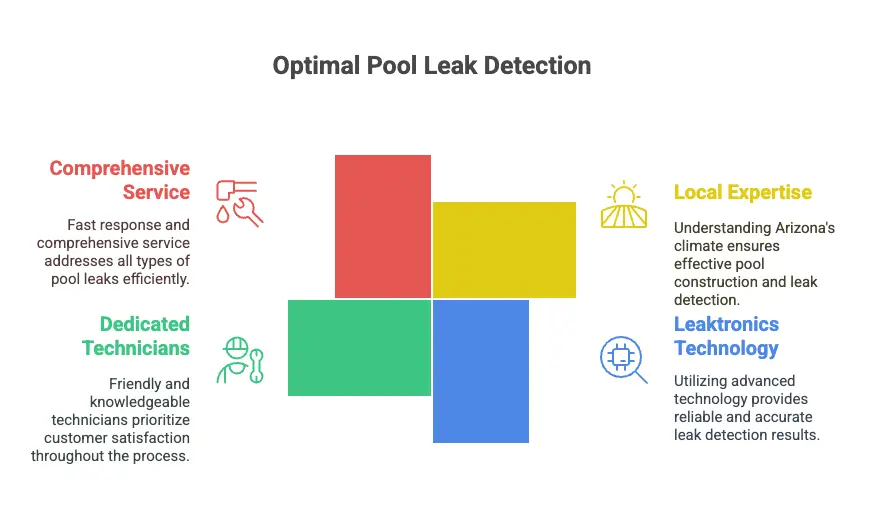
How Can You Fix Pool Leaks and Prevent Future Issues?
Once the leak is found, repairs may include:
- Patching cracks or holes in the pool shell or vinyl liner
- Sealing or replacing leaking fittings, skimmers, or lights
- Repairing or rerouting leaking plumbing lines
- Fixing equipment leaks or replacing faulty components
Regular pool maintenance, prompt repairs, and annual leak inspections can help prevent future leaks and keep your pool in top shape.
Key Takeaways: Who Detects Pool Leaks?
- Pool leaks can cause water loss, high bills, and structural damage if not detected early.
- The bucket test and dye test are helpful DIY methods, but professional leak detection is essential for hidden leaks.
- Experts use advanced tools like Leaktronics equipment, pressure testing, and sonar to find leaks quickly and accurately.
- Optimal Pool Leak Detection is Arizona’s trusted choice for pool leak detection and repair.
- Timely leak detection and repair saves water, money, and ensures your pool remains a source of fun—not frustration.
If you suspect your pool is leaking, don’t wait—contact Optimal Pool Leak Detection for expert service and peace of mind!
Other ARTICLES

.webp)
.webp)
Pool Leak Solutions For You
Protect Your Pool Investment.
Claim Your Free Quote Now!
